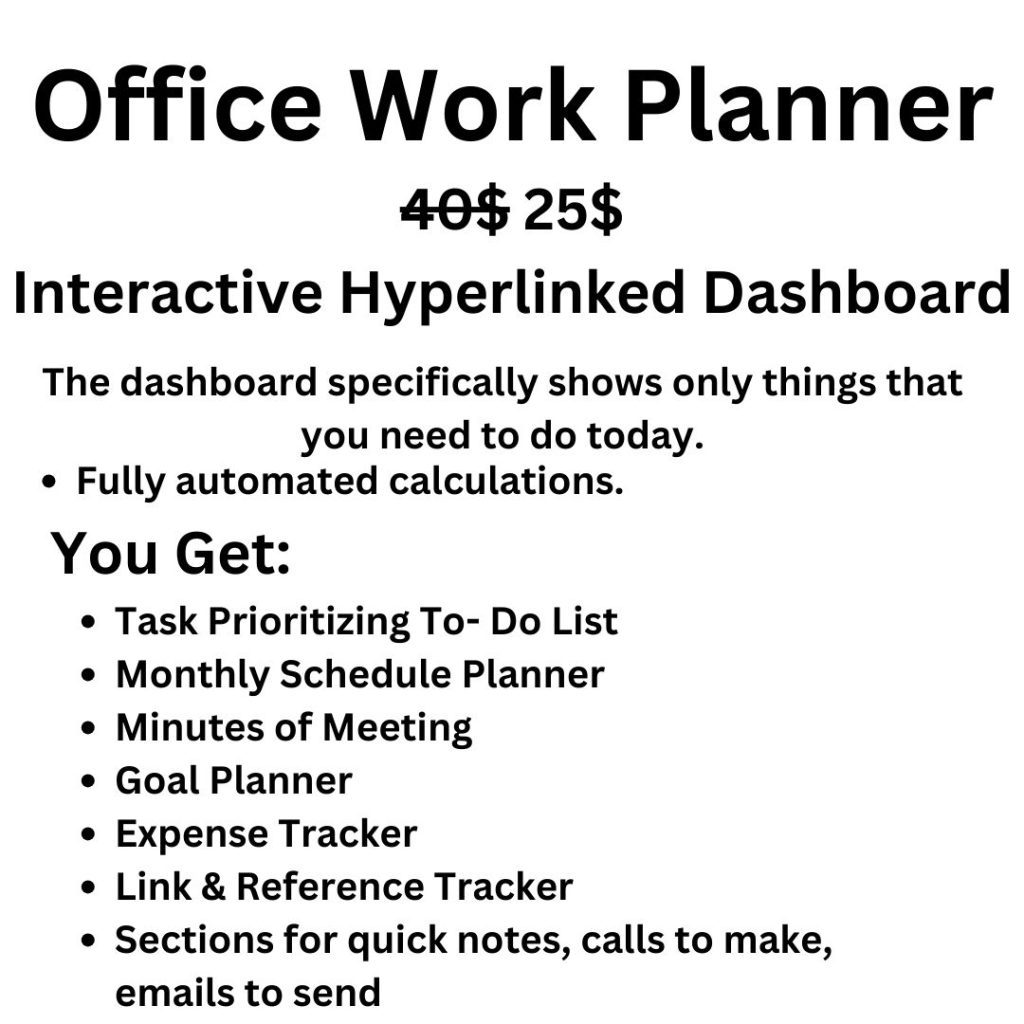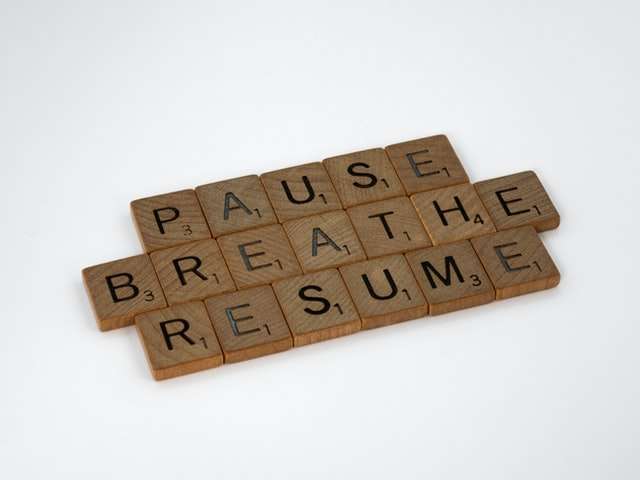20 Time Management Tips to Boost Productivity

Work is never ending and with each day getting more competitive, the only way to stay on top of things is to get good at time management. In this post I a sharing with you some of the tried at tested time management tips that I have used in the corporate world in my 10+ years of career and some are used even in my personal life. So get ready to get organized at work and more productive with these 20 tips for time management at work.
How to manage time at work
Here are the 20 most effective time management tips that you can use to be more efficient and productive to get things done.

Tip 1: Make To-Do lists
You cannot manage your time well unless you know what you need to get done. Often many tasks are unattended not because you had no time but because you didn’t remember them and never planned to do them.
Hence one of the most important things to do if you want to manage your time well is to have a To-Do list, and never trust your brain to remember things. You are not only taking a risk of missing a task in case you forget it but also overwhelming your brain So, to make things better and get some peace of mind make a To-do list and write down all the things that you need to take care of as and when you find. A running To-Do list is useful for planning.
Here are 10 Ways To Make An Effective To-Do List
Tip 2: Prioritize tasks
For effective time management, you must prioritize your task well. Often you may spend time on things that are not important to you but may seem urgent or are priorities of others only to delay the things that matter the most. So always have a look at your To- Do list to prioritize your tasks and plan those that are most important and first followed by others.
By Prioritizing you will also be able to get an insight into tasks that align with your goals and liking that need much attention and those that can be delegated to others. Delegating your tasks to others or outsourcing them to others is also effective time management as these tasks may end up taking much of your time or your time may be best put to use for other highly important tasks. There are different ways to prioritize your tasks, you must read How to prioritize work tasks to start with prioritizing your To- Do list.
Tip 3: Use a planner
In order to be good at time management you must be organized this helps you plan better and avoid being all over the place. One of the most important things you must have for better time management is a dedicated work planner.
Having notes on random pieces of paper, reminders, and tasks on a sticky note everywhere makes you unorganized, and distracted and you are unable to plan and execute this. You also waste a lot of time searching for information that you had captured somewhere. Time management is not only about managing time well but also to avoid wasting time. With a dedicated work planner, you can take notes, list tasks, and plan and schedule appointments everything will be in one place. Here is a work planner that I liked using in the past.
I use the below work planner, it has everything you need to be organized and productive at work. The interactive dashboard is the best feature, it tell you everything you need to do for the day.

Tip 4: Plan your week
In order to get more done and take charge of your time use your To-Do list to plan the tasks for the week. A weekly plan for the next week will help you create a clear roadmap for yourself so that you know exactly what needs to be done and when. When you plan in advance you have better control of time as you can plan challenging tasks on days you are less occupied and vice versa.
Weekly planning helps you stay focused and motivated throughout the week, make you productive, and helps you achieve work-life balance. For more details to get started with weekly planning read Weekly planning secrets for work-life balance
Tip 5: Don’t stay late for work
Staying up late at work for completing your task is a reflection of your being inefficient in completing your work on time. Moreover it in a way does not let you complete work on time. As per Parkinson’s law work expand with time, this means if you give yourself more time to do a task you will essentially do it in more time, so if your form a habit of staying up late to do the work you will be more likely to not complete the work on time. But if you decide to finish work within the assigned time or during the working hour you will be more focused to do that in that period of time to get it done.
So don’t let yourself think you can stay up late and do it you will more likely not do the work during work hours and end up staying late.
Tip 6: Structure your workday
At work it often happens that your day gets carried away with email, phone calls meetings, etc. basically all things that are not getting the work done but may seem like you are doing the things and end up feeling unsatisfied at the end of work day.
So to manage time well draft a structure for your work day. For example, it can be an hour of emails towards the end of the day, Deep work sessions at the start of the day, meetings in the second half of the day, etc. This will help you work effectively toward everything and juggle the role well, making you less overwhelmed and more productive. For more tips to help you structure your work day and be productive read How to have a productive day.
Tip 7: Turn off your emails
Email is a major distraction from work. For better time management at work, you should dedicate a particular time of your work day and attend to email only at that time and just turn your email, otherwise, the notification of emails keeps distracting you. And sometimes I feel if the email is open even while doing some work I will get tempted to look at the email (I don’t even know what I look there). So unless you are a customer support person or someone with a similar role where the job demands constant emailing you should turn the emails off. And trust me you don’t need to mail so often.
By turning off your emails you focus on the task at hand without being constantly interrupted and complete them faster and more efficiently. For tips on handling emails effectively, read Best Tips to improve email productivity.
Also, you can save some time by effectively organizing your email, read How to organize email quickly.
Tip 8: Set Monthly Goals and reflect every month
To be good at time management you must be clear on your expectation, To-Do list gives you an overview of the task but without goals you are directionless. At the start of each month spend some time setting out goals for the month these will help stay focused on things that matter and prioritize well.
Before setting monthly goals spend some time reflecting on the previous month. This will give you great insight into the achievements and failures but most importantly identify the things that waste your time and those that are good return for the time spent. Based on these observations you should refine your new month practices.
This way you can easily manage your time more effectively and make sure that you are achieving your desired results and be more intentional with the way you spend your time. Monthly planning need not take a lot of your time, I spend no more than 30 minutes on it each month and they are totally worth it, read Monthly Goal Planning for Balanced Life under 30 min.P.S. For more information on monthly reflection read How to do Monthly reflection quickly and 100 end of month reflection questions for self-review

Tip 9: Batch tasks
Task batching is a process of grouping similar tasks in a batch and completing them instead of doing them one by one over different days or at different times throughout the day. The simplest way to understand batching tasks is by answering emails. You either decide 1 hour towards the end of the workday to answer all the emails of the day or spend a few minutes at random answering emails as they come. The latter will distract you and make you less efficient.
Also, when you switch from one task to another you lose track of the work at hand and need a few minutes to realign your thoughts to get back to it. This makes you inefficient and adds to work stress. So spend some time with your To-Do list to identify tasks that are similar in nature and clubbed together to make better use of your time.
Tip 10: Automate where possible
With the advent of technology, there are many ways in which you can automate tasks. You should start with identifying tasks that are repetitive in nature and find ways to automate them to save time.
These can be as simple as creating reminders for tasks or deadlines and scheduling follow-up emails or messages. You can also make templates and build dashboards so that you don’t have to spend time making all the graphics and reports from scratch. By automating these tasks, we can save a lot of time that can be better spent on important tasks.
Tip 11: Follow Time – blocking
Time blocking is a powerful strategy for better time management. You divide your time in small duration as blocks and assign a specific task to it ensuring to complete it in the assigned time. By time blocking you can avoid distractions, procrastination, and multitasking. You should time block sufficient time to complete the task. This makes you efficient and mindful of the time you spend on different activities. You can either time block your entire day or some part of the day based on your need. It is also a very effective way to plan your day. Google Calendar is the best way to do it. For more details on using time blocking read Manage Your Time Like a Pro with Time Blocking.
Tip 12: Use Pomodoro
Pomodoro is a simple but powerful way to be efficient with your time. It helps you get things done and also not get burnout. The Pomodoro Technique of the time-management method involves working with complete focus without a break for 25 minutes and then taking a five-minute break. If your task is completed in 25 minutes you can move to the next or continue with the same for the second round of 25 minutes, followed by a break. After 4 such Pomodoros, you should take a longer break of 20 to 30 minutes. This increases your focus and productivity, eliminates distractions, and reduces stress. On days I have a lot of work that needs deep focus I use Pomododro.
Tip 13: Make a To-don’t List
While we often focus on building new habits and learning new things it is equally important to identify things that do not align with the results we seek. So in order to get good with time management make a list of To- Dont’s. These are things that distract you, waste your time, or are counterproductive. These can be as simple as checking your phone for every notification or wasting your time chatting with coworkers. Identify this that limits you and destroys your time and keep it handy probably on your computer screen as sticky notes or desktop.
Tip 14: Set a goal for the day
From your To-Do list, there should be at least 1 high-value and challenging task that you must set as your goal for the day. This will help you get forward and work towards things that are difficult and often procrastinate. You should mostly schedule these tasks during the first half of the day when you are most energetic.
When you have a goal for each day you are motivated and at the end of the workday feel accomplished. This also ensures that you are not just doing the mundane tasks and procrastinating work that you dislike, allowing you to be successful at work.
Tip 15: Learn to Say No
Learning to say no is a skill you need to learn to be effective with your time. Saying yes to every opportunity that comes your way or every work given by your boss can lead to a packed schedule with no time to focus on important tasks or activities.
Saying no allows you to prioritize your time and energy and helps you avoid burnout. It can be difficult to say no at first, but it’s important to remember that saying no doesn’t mean you’re being rude or unhelpful. In fact, the ability to say no in a respectful and professional manner can actually earn you more respect and credibility in your personal and professional relationships.
Tip 16: Follow 1-3-5 Rule
The 1-3-5 Rule helps you give a good structure to your day and ensure that tasks of varied priority and difficulty are comprehensively covered during your work day. To follow the 1-3-5 Rule you must divide your day to attending 3 types of tasks
1 = 1 large high-priority task is attended to first in the day.
3 = 3 medium size or priority tasks are attended after the 1 large task
5 = 5 small tasks are, generally mundane tasks that are attended at the last.
Following this technique, you will be able to give attention to all types of work and get a complete balance of productivity and efficiency.

Tip 17: Plan buffer time
We always have a tendency to over-plan by underestimating the work. This is one of the main reasons that the plans we make are not always successful. Also, unexpected situations can arise making it difficult to manage time. To beat this issue always have whitespace in your daily schedule. The buffer time can be used to make up for anything this is not completed as planned.
Tip 18: Take breaks
It is common to feel a need to work constantly to meet deadlines or impress our bosses. We often feel guilty about taking breaks However, taking breaks is essential for effective time management and to avoid burnout. Research suggests that taking short breaks every 45-60 minutes can actually increase productivity. Stepping away from your work allows your brain to recharge, preventing fatigue and enhancing focus when you return to your tasks. So, take breaks in between work and don’t feel guilty about it.
Tip 19: Try Deep work
Every work profile includes some tasks that are mundane in nature and do not require critical thinking to complete them and some tasks that are difficult and require critical thinking and often creativity to complete them. The deep work concept is based on this distinction of tasks, a term coined by Cal Newport. So for completing difficult tasks that require a lot of thinking and are difficult in nature, you should practice deep work. For doing deep work you should get focused and concentrate on the work and when you are completely engrossed in the tasks you will be able to get quality work done efficiently as you would have learned in dept on the matter at hand and will be productive. It is good for time management for people who do a lot of research and analytical interpretation of data.
Tip 20: Organize your work desk
This may not sound to you like a thing that will help in time management but being organized can improve time management. When you are unorganized and surrounded by clutter you will spend a lot of time looking for things, you will lose your focus, and compromise your efficiency. Having an organized desk keeps your mind clear and limits distractions. So make sure to organize your desk in a way that makes things accessible and does not make you spend a lot of time searching for things. You should read 14 Tips to organize your work desk.
Save the Pin for later

Conclusion
So these are the 20 tips for time management at work. I am sure these tips will be suitable for all types of work professionals and boost your productivity. You start with implementing a few and observe how they work for you and eventually move to put others to practice mastering time management is an evolving process with keep improving with time as you learn some and move through different phases of life so make sure to save the pin above for further reference.
Also, If you are a working mom or working parent you should check my post 10 Practical Time management tips for working moms
Related posts you may like:
12 Master Lists you must make to be organized at work
Accelerate Your Promotion with 10 strategies for success at work
10 self-care at work tips for your wellness at the workplace











